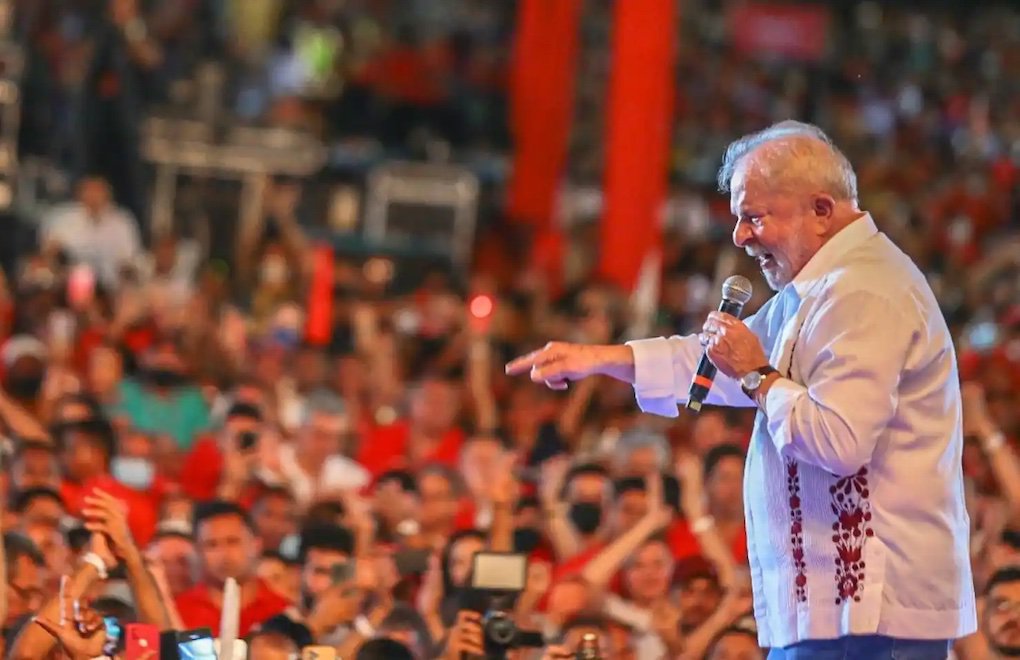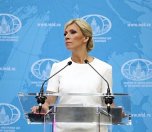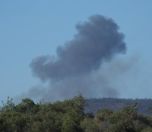Turkey and the "Third Reich" in the mirror of Russia
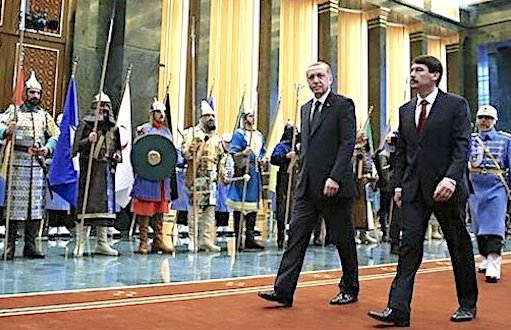
"It is obvious that for Turkey, the export of chaos is becoming the most important vector of foreign policy. The problem, however, is that "chaos for export" performed by Turkey turns out to be quite in demand in today's world since in the last few years it has become a competitor to the absolute dominance of stability through international law, the dismantling of which we are witnessing now. In general, a new era is coming, and Erdogan is fully consistent with it, winning the sympathy of relatively wide layers of not only the Turkic-speaking community.
"I remember that in the forties of the last century a very similar situation developed. Only it was not Turkey, but Germany. And it is well known how that retro chaos ended."
This is how Turkey's future under Erdoğan's leadership is predicted in a comprehensive article titled "The Great Turkish Gambit from Idlib to Karabakh" in Russia's army newspaper "Zvezda" last week. Its author is not a soldier, but a St. Petersburg State University lecturer, Associate Professor Dmitriy Evstafiyev. However, the article assumes bigger importance for its title and the medium it has appeared in than the author himself and its particular content. The article substantiates and clarifies Russia's new political positioning vis-a-vis Turkey as reflected in Russian Foreign Minister Sergey Lavrov's statement that Turkey is not "Russia' strategic ally" but their "partner", in a context also to bind the Russian Armed Forces.
The title of the article reflects a diligent resume of its main message. It, in a sophisticated language, reflects Russia's discomfort of Turkey's breach into its own sphere of influence -"from Idlib to Karabakh"- and their awareness of Erdoğan's game, both. "Gambit" is a concept of strategy derived from the Italian term "gambetto" -tripping up- and is widely known for its meaning in chess: "To deliberately sacrifice a piece -mostly a pawn- at the opening in order to gain a greater advantage in the later stages of the game. However, Evstafiyev predicts that despite some strategic advantages that allow him to adapt to the circumstances, Erdoğan due to his weaknesses in the buildup is doomed to pursue a game that he will lose in the later stages of the game for the risks imposed by the "gambit". The parallelisms he draws with Hitler's end in the conclusion leaves little to add.
The article deserves attention for abundant undisclosed information it presents regarding Erdoğan's adventures in Eurasia of setting up a new "United Army of Turan" with the motto of "six states one force" following the footsteps of Enver Pasha; and also for the arguments it puts forth in terms of the political patterns of the "Erdoğan type" leadership growing out of the "new age" where international law is dismantling.
If the prospects brought forward in the article is worth serious elaboration -indeed they do- then any neglect by Turkey's social opposition in placing the risks of war for the country and the region implied by the "Turkish gambit" on its agenda would boil down to nothing but complicity in the impending catastrophe. If, the Russian Armed Forces has no doubts about Erdoğan's plans of "creation of a Turkish world from North Africa to the Caspian Sea and from there to Central Asia", then the annexation of Northern Cyprus by Turkey is just a matter of time and Eurasia appears as the new conflict zone for Turkey while Russia looms on the horizon as the "new enemy".
On the other hand, one of Evstafiyev's arguments, paralleling with similar determinations by Turkey's social opposition concerning the reciprocality in Erdogan's domestic and foreign policies, leads to a difficult question at the background of Russian foreign policy vis-a-vis Erdoğan's: "The situation around Erdogan's repeated gambits over and over again can be described as tactical aggression against the backdrop of his own strategic weakness." Evstafiyev argues. "But it, as already noted, leads to success against the background of even greater weakness and indecision of competitors, especially the so-called great powers. At the same time, internal problems are not restraining the Turkish leader, but, on the contrary, are pushing for more active behavior in the foreign policy arena. For it is only on the basis of foreign policy successes that Erdogan gets a chance for a favorable reconfiguration of the domestic political situation.
"Well, the geopolitical configuration being formed by Turkey not only fixes the state of institutional degradation of key Western institutions but also gives Erdogan the opportunity to play on the contradictions of the main powers of the world."
Then Evstafiyev needs to answer the question: If Turkey is assuming today the part played by Germany in the Second World War, then has not Russia's "weakness and indecision" in presenting Idlib for Erdoğan as a permanent resource of a "proxy army" and opening the way for Turkish incursion into Êfrin to provide him a so-called "foreign policy success" at the expense of Kurds' lives and freedom, been a "chance" for him?
If so, should not those who have come to their senses to recall the lessons of history only when Erdoğan has knocked on the gates of their sphere of influence with a so-called "United Turan Army", weigh now their part in the impending catastrophe in the scale of history on the background of the destruction the "Third Reich" inflicted on humanity -and especially on Soviet Russia- as it galloped to its very end. (EK)
The long and hot summer ahead
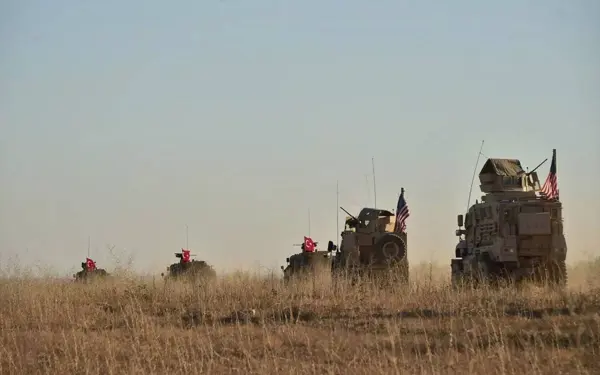
'Shamelessness'

LEFT TIDE IN LATIN AMERICA-III
The new task: 'To contribute the reintegration process, to recover the lessons of the Cuban revolution'
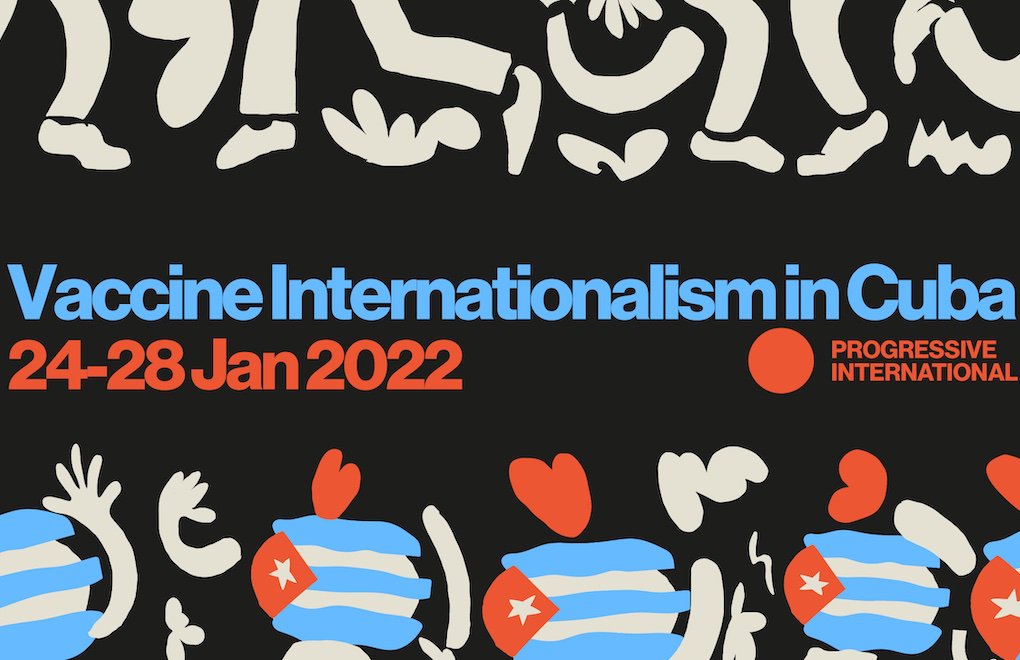
LEFT TIDE IN LATIN AMERICA-II
An International to accompany the continental rise of the Left

LEFT TIDE IN LATIN AMERİCA-I
David Adler: "A new vision that is feminist, ecologist, and pluralist"
